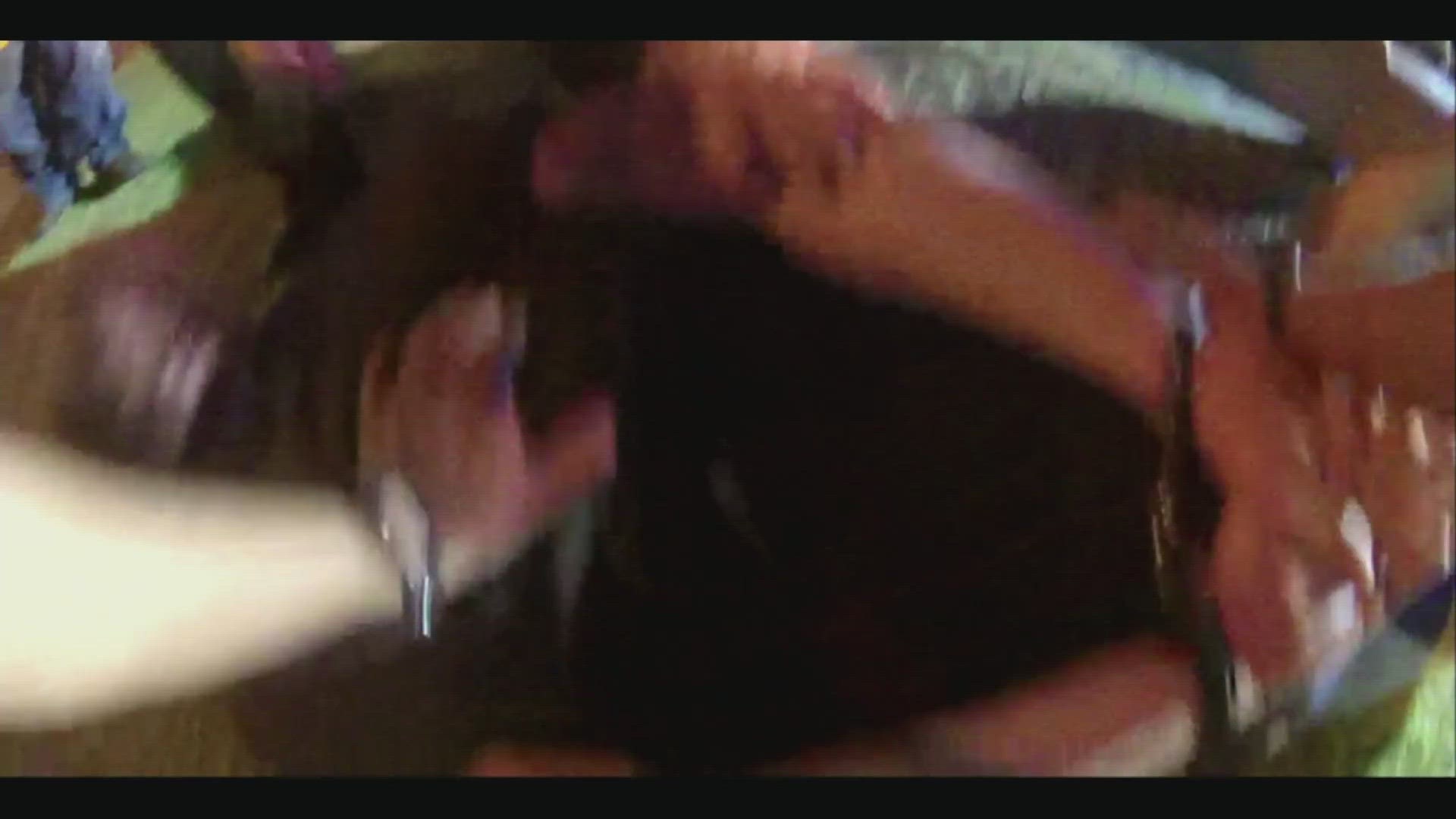DALLAS — The civil trial against the City of Dallas and four police officers over the 2016 death of Tony Timpa has been delayed as it was getting set to begin.
Jury selection in the trial was scheduled to begin Monday, July 17, in federal court in Dallas. According to court records, the trial was delayed and will begin at an unspecified date.
Timpa died in August 2016 after calling 911 for help, saying he was schizophrenic, off his medication and had taken cocaine. When officers responded, they ultimately handcuffed Timpa and pinned him face-down for 14 minutes. Timpa lost consciousness and died that night.
The Dallas County Medical Examiner ruled Timpa's death a homicide, citing the toxic effects of cocaine and physiological stress associated with physical restraint. And while the responding officers who took Timpa into custody were indicted on misdemeanor deadly conduct charges, their cases were later dismissed.
Meanwhile, the Timpa family's civil case against the city and the officers has moved forward, albeit slowly. It was filed in 2016, after Timpa's death, but it wasn't cleared for trial until a key Supreme Court ruling last summer.
The high court denied the city's request to review a lower court's decision that the officers could be sue over Timpa's death.
Now, the case will be heading to trial at a later date.
Here's an overview of the Timpa case:
How did Tony Timpa die?
Timpa, 32, was at the New Fine Arts store at 1720 W. Mockingbird Lane, in northwest Dallas, on Aug. 10, 2016. He purchased a lighter, his family's lawsuit said, and left the store.
At some point after leaving, Timpa, who was dealing with mental illness, called 911, saying he was schizophrenic, off his prescription medication and had taken cocaine.
By the time officers arrived, two security guards at the store had already handcuffed Timpa, who was yelling. The responding Dallas officers - Dustin Dillard, Raymond Dominguez, Kevin Mansell and Danny Vasquez - kept Timpa handcuffed and pinned him face-down.
In body camera video from that night, he is seen handcuffed and face-down with officers on top of him for about 14 minutes. Timpa cries for help, then loses consciousness.
Timpa was yelling and officers said they pinned him down because he was "rolling rolling."
At one point, officers zip-tied his ankles together because he was trying to kick officer.
At one point, paramedics check his vital signs. Timpa appears unresponsive when he's given a sedative.
“The fire department did take his vitals and he seemed fine then but certainly they could have been more proactive,” Timpa family Geoff Henley previously told WFAA.
After he's silent, one of the officers says, "I hope I didn't kill him."
Once in the ambulance, officers and paramedics performed chest compressions on Timpa but couldn't revive him.
Body camera video of Timpa's death
Here is the body camera video of the officers' interaction with Timpa before he died:
Were the officers charged?
Three of the officers were indicted on misdemeanor deadly conduct charges, but those charges were later dismissed by Dallas County District Attorney John Creuzot.
Creuzot said three medical examiners declined to testify in the case.
"In our opinion, there was no crime committed, and there was no case to go forward,” Creuzot said at the time.
What happened to the officers?
The officers named in the lawsuit are Dustin Dillard, Raymond Dominguez, Kevin Mansell and Danny Vasquez.
It was unclear Friday what their status is with the police department, though Dillard was promoted to the rank of senior corporal during a ceremony last summer.
What is the lawsuit seeking?
The lawsuit, which was initially filed in 2016, is seeking damages for an array of allegations, including wrongful death, survival action, false imprisonment, assault and battery, negligence and gross negligence, and negligent hiring and supervision.
The City of Dallas had argued for qualified immunity for the officer involved in the Timpa case. Qualified immunity is a legal principle introduced by the U.S. Supreme Court which provides immunity to government officials from civil suits unless the official violated clearly established constitutional or statutory rights any reasonable person would know.
But the courts ruled in favor of Timpa's family, saying the officers had violated his constitutional rights, meaning they can be sued in his death.
"Not only did the judges determine that the evidence we brought show that the officers used unreasonable force -- but deadly force against a man who was not resisting at all," Timpa family attorney Geoff Henley said in a statement in December 2021.
More coverage of the Tony Timpa case:

